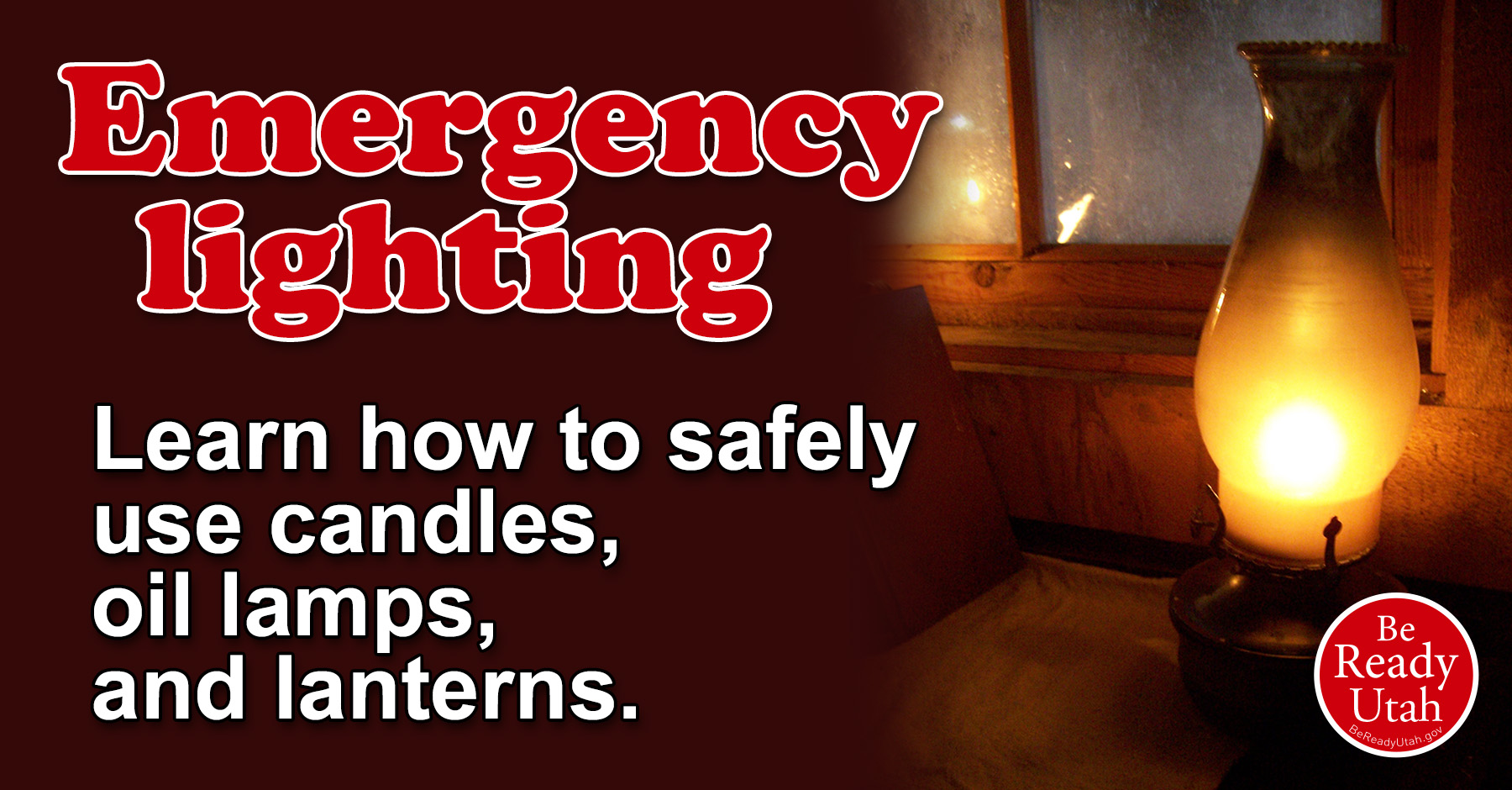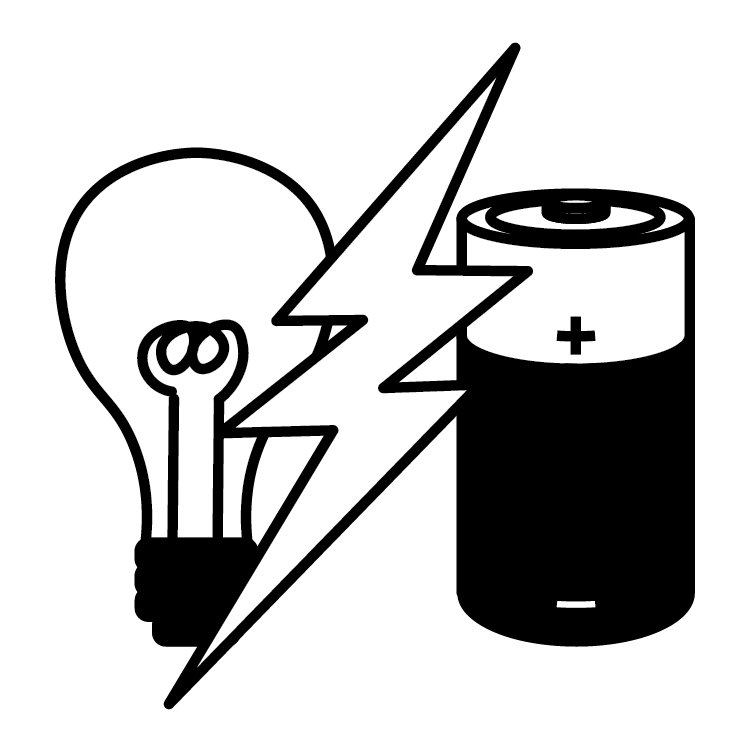
Light and Power
The Point
Emergency lighting is necessary for safety and for emotional and mental health. Light helps you see and avoid hazards. It can help you better see and understand your situation when a disaster happens. Have you ever been in a cave with absolutely no light? It can be disorienting at the very least.
Power outages are very common, especially during emergencies and disasters. Knowing what to do in a power outage situation can help you "Be Ready" for your own safety and the safety of others.
Do This
- Add electrical power and natural gas company phone numbers in your emergency contacts.
- Put flashlights, batteries, and chemical glow sticks in emergency kits.
- Store batteries in original packaging – not in flashlights, radios, or other electronic devices.
- Learn how to safely shut-off all of the utilities at your home and teach all responsible people how and when to do the same.
- Store a gas shut-off wrench near your outside gas meter.
- Have emergency chargers for mobile phones and other emergency communication equipment.
- Install safety lighting where needed around your home.
- Get power back-ups if someone uses life-saving electronic medical equipment.
- BONUS: Get a generator and learn how to safely use it to power larger appliances in your home.
Videos
- The Be Ready Buzz: Batteries in Disaster Supply Kits
- The Be Ready Buzz: LED Keychain in Disaster Supply Kits
- 20 to Ready: Power Failure Prep
- 20 to Ready: Got Fuel?
- 20 to Ready: Emergency Power
- FEMA: Be Prepared For Power Outages
- Rocky Mountain Power: How to Reset Your Circuit Breakers
- NFPA: Dan Doofus A Shocking Revelation
- NFPA: Candle Safety Tips
Downloads
Links
- Power Outage
- Generator Use and Safety
- Disaster Supply Kit: Light and Power
- Candle and Oil Lamp Safety
- Ready.gov: Power Outages
- Ready.gov: Get Tech Ready
- FEMA: Use Generators Safely at Home
- Rocky Mountain Power: How to Prepare for Power Outages
- Rocky Mountain Power: Electrical Safety
- Dominion Energy: Earthquake Preparedness & Natural Gas
- US Department of Energy: Preparing for a Power Outage
- Energizer Battery: Battery Care
 Since the earliest of human history, people have been using light, trying to push back the darkness. Darkness breeds fear, uncertainty, and hides hazards and other dangers. Long periods of darkness can cause depression and confusion. Even the smallest amount of light can reveal safe paths, make tasks easier, and bring hope to a difficult situation.
Since the earliest of human history, people have been using light, trying to push back the darkness. Darkness breeds fear, uncertainty, and hides hazards and other dangers. Long periods of darkness can cause depression and confusion. Even the smallest amount of light can reveal safe paths, make tasks easier, and bring hope to a difficult situation.
If an emergency happens when it is dark, even a place as familiar as your own home can be disorienting. Add the chaos that can happen in an earthquake or other incident where furniture, walls, and other home fixtures can topple or be strewn about, and you and others can easily be injured or worse.
Electrical power has become a necessity for almost everything we do in our daily lives. From the device you are using to read this, to the electricity that powers the bulb that lights your room, to the vacuum you use to keep your house clean, and the medical devices that maintain life. We have come completely dependent on electricity. When it is gone, even temporarily, our world is turned upside down. Prepare now with these safety tips and preparedness suggestions so that a loss of electricity is just an inconvenience and not an emergency.
Home Safety
As part of a safety home hazard hunt, be sure to install proper lighting in hallways, in stairways, on porches, and at home entries. Not only is it important for safety, but a well lit home is a deterrent. Have motion sensor lights at the front and back doors to discourage burglars and help you safely get in and out of your door. Also make sure your house number is well lit at night and can easily be seen from the road. You don't want emergency responders searching for your house when time is critical. Install emergency lighting, that works when the power is out, along escape routes. In the event of a house fire, or other emergency you may need to evacuate your home at night when there is no power.
Have a qualified electrician perform a safety evaluation of the wiring in your home: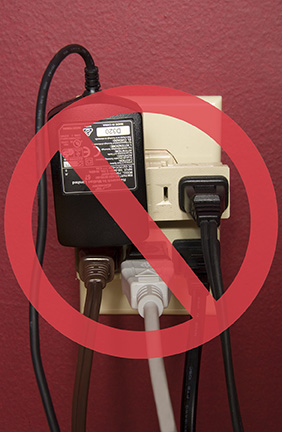
- Be sure that you have enough electrical outlets in each room for the load you are putting on your system and to avoid multiple plug attachments or long extension cords. Remember, too many appliances using the same outlet can cause a fire.
- Do not run extension cords under rugs, furniture, over hooks, or through doorways.
- Make sure all outlets and switches have properly fitting face plates.
- Use surge protectors as needed.
- Make sure all electrical outlets in bathrooms and near water use a Ground Fault Circuit Interrupter (GFCI) to prevent shock.
- Make sure light bulbs are the correct wattage for the lamps or light fixtures in which they are used. Too high a wattage can cause a fire.
- Make sure all appliances have an Underwriters Laboratories (UL) mark or stamp.
If you have frequent blown fuses or popped circuit breakers, talk to a qualified electrician about upgrading your electrical system. Only allow qualified electricians to install or repair your wiring.
Know when and how to safely shut off electricity, gas, and water at your house. Keep a working flashlight next to your bed. Store and rotate batteries. Keep extra phone chargers in emergency kits, at work, in vehicles, etc. Know how to safely use a generator. Never run a generator indoors or near a door or window. Only use gas heaters with proper ventilation.
Power Outage
One of the most common of emergency situations is a power outage. Whether it is from high winds and bad weather, extreme temperatures, or some mind of accident, it seems that most areas experience at lest a few power outages each year. At the very least, these are inconveniences that last for a few hours. If you have vital medical equipment or important electronics that are dependent on power, or the outage lasts longer than a few hours, this inconvenience quickly becomes a lot worse, possibly life threatening. Have essential supplies on hand to last a few days or even longer.
 If the power goes out, the first thing to do is to grab your emergency flashlight. Darkness is disorienting and can be dangerous if you hurt yourself on an unseen obstacle or tripping hazard. Reliable flashlights need to be put in strategic locations around your house. Keep them near beds, in the kitchen, utility room, garage, and anywhere that is easily accessible in the dark. These are emergency flashlights only, not to be played with or taken for other projects and forgotten to be returned. Batteries need to be rotated every six months to prevent corrosion. Another option is to use rechargeable flashlights that stay in the wall outlet and automatically turn on in an outage. Rechargeable lights are always ready and great for lighting your emergency escape route, but most only last a few hours without a recharge. Again, put them throughout your home in area where they will be needed.
If the power goes out, the first thing to do is to grab your emergency flashlight. Darkness is disorienting and can be dangerous if you hurt yourself on an unseen obstacle or tripping hazard. Reliable flashlights need to be put in strategic locations around your house. Keep them near beds, in the kitchen, utility room, garage, and anywhere that is easily accessible in the dark. These are emergency flashlights only, not to be played with or taken for other projects and forgotten to be returned. Batteries need to be rotated every six months to prevent corrosion. Another option is to use rechargeable flashlights that stay in the wall outlet and automatically turn on in an outage. Rechargeable lights are always ready and great for lighting your emergency escape route, but most only last a few hours without a recharge. Again, put them throughout your home in area where they will be needed.
Flashlights are much safer than candles or oil lamps for the obvious fire safety issues. But in an emergency, you do the best you can with what you have. If you run out of batteries, you only option may be candles and/or oil lamps. If you must use them, be very cautious and practice fire safety at all times. Learn more about candle and oil lamp safety.
After getting a light, check the circuit breakers or the fuse box. Learn about resetting your circuit breaker with this video from Rocky Mountain Power. If there isn't a tripped breaker or a blown fuse, go outside and see if any of the neighbors' lights are on. If the neighbors' power is off as well, call your power company to report an outage. Put this number in your emergency contacts NOW so you don't have to try and find it when you need it.
Speaking of phones, keep your phone charged. If an outage is just localized to your neighborhood, it's possible your phone still might have service. Send texts when possible rather than an actual call, and limit phone use to emergencies. Keep some mobile phone power banks plugged in and powered up for if your phone loses power and you can't plug it in to a wall outlet.

Turn off all electrical equipment, computers, electronic devices, heaters, air conditioners, and appliances to prevent power surges in your devices and overloading the circuits in your home when power is restored. This can also be done at the circuit breaker. Turn off the individual breakers except, keep one breaker for one light switch in the on position so you know when power is restored. If you have vital medical equipment or important electronics that are dependent on power, get a back-up generator system in place now and make plans for the possibility of a power outage.
When the power returns, turn on the individual breakers one at a time to avoid overloading your home's circuits and the electrical system. If your lights are dim, flickering, or are excessively bright, turn off all of the breakers individually again. Call your power company, explain what is happening, and tell them there is still a problem. If everything is OK, turn on your porch light when power is back in service. After crews complete repairs, they patrol the area of the power failure to see if lights are on.
Away from Home
On 13 January 2012, the Mediterranean cruise liner Costa Concordia deviated from it's course and struck an underwater rock formation. The ship lost power and listed to one side. Passengers and crew were disoriented in the pitch black darkness, walking on walls, trying to find and exit. What would you do in a similar situation? Fortunately, some had mobile phones and used their lights to find the way and avoid dangerous obstacles and pit falls.
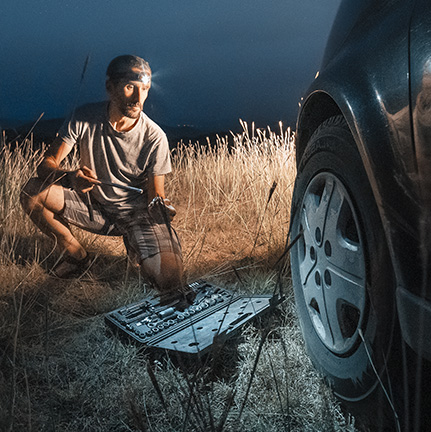 You never know when you could be in a dark situation. It is a good idea to always carry some form of light with you as part of your everyday carry kit, whether you have your mobile phone (always keep it charged) or you carry a small flashlight. You'll be surprised how often you use it. Check and change the batteries in your flashlight monthly. Not only is a light a good thing for dispelling darkness, but your can also use it for signaling if you are lost or stranded.
You never know when you could be in a dark situation. It is a good idea to always carry some form of light with you as part of your everyday carry kit, whether you have your mobile phone (always keep it charged) or you carry a small flashlight. You'll be surprised how often you use it. Check and change the batteries in your flashlight monthly. Not only is a light a good thing for dispelling darkness, but your can also use it for signaling if you are lost or stranded.
Keep a flashlight or headlamp and some chemical glow sticks in your vehicles for if you are stranded at night. It helps you to see and also to be seen. Have you ever changed a tire in the dark without light? Not fun. Not safe.
Even when you are going out for a day hike, include a flashlight. Unexpected things happen that could cause you to stay out past dark, even if that wasn't your intention.
Power Outage
Click Here
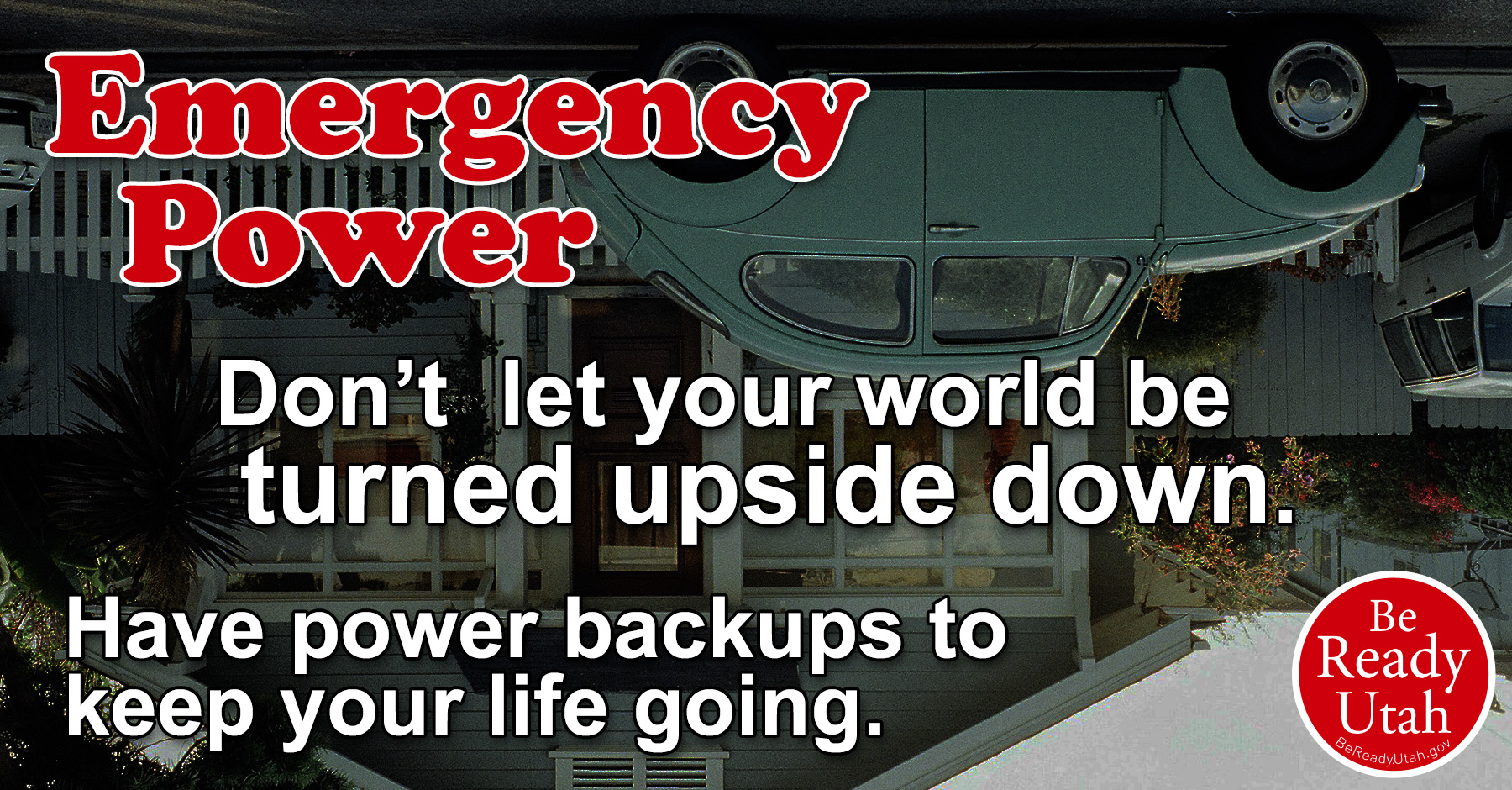
Generator Use and Safety
Click Here
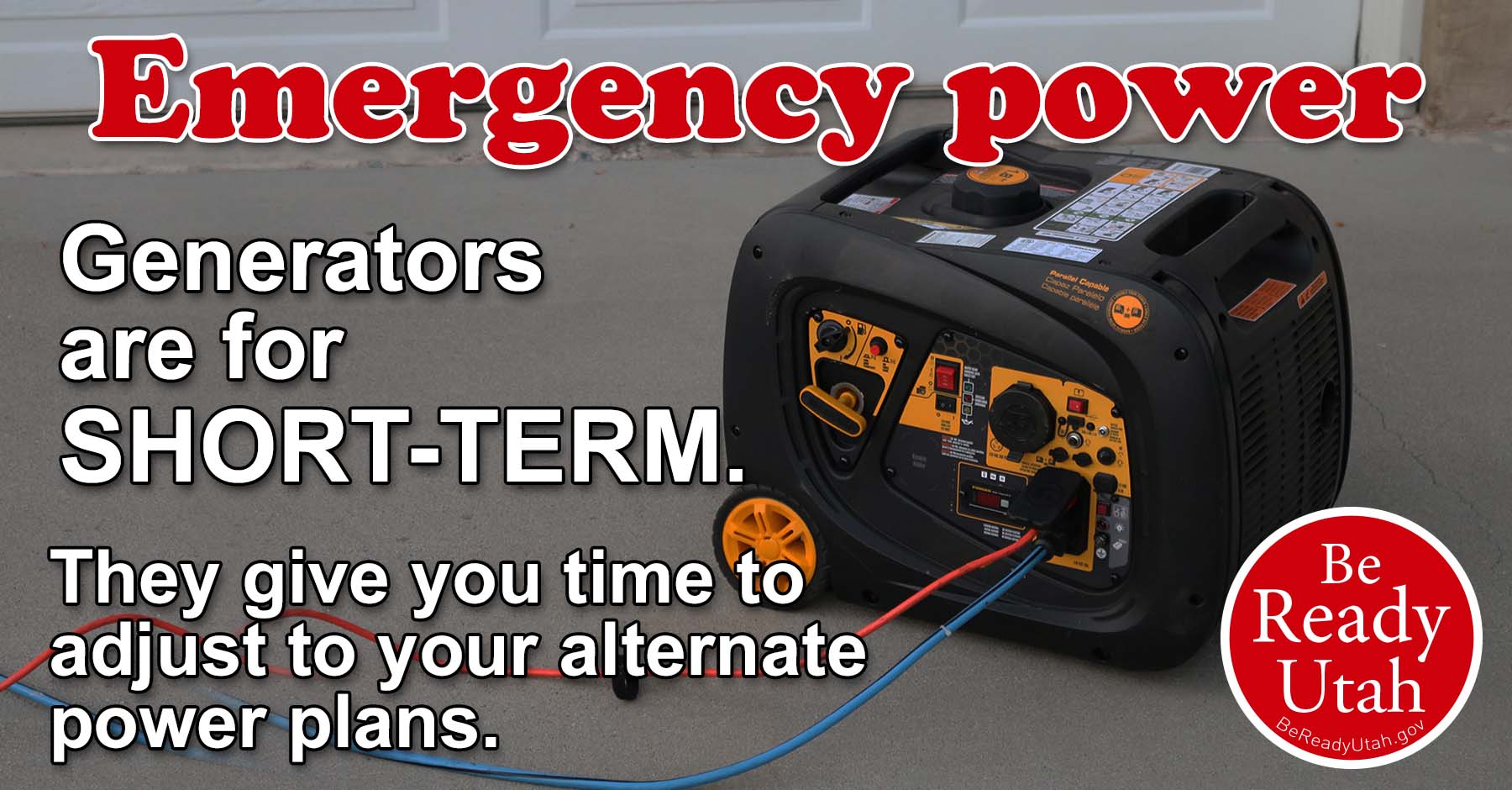
Disaster Supply Kit: Light and Power
Click Here
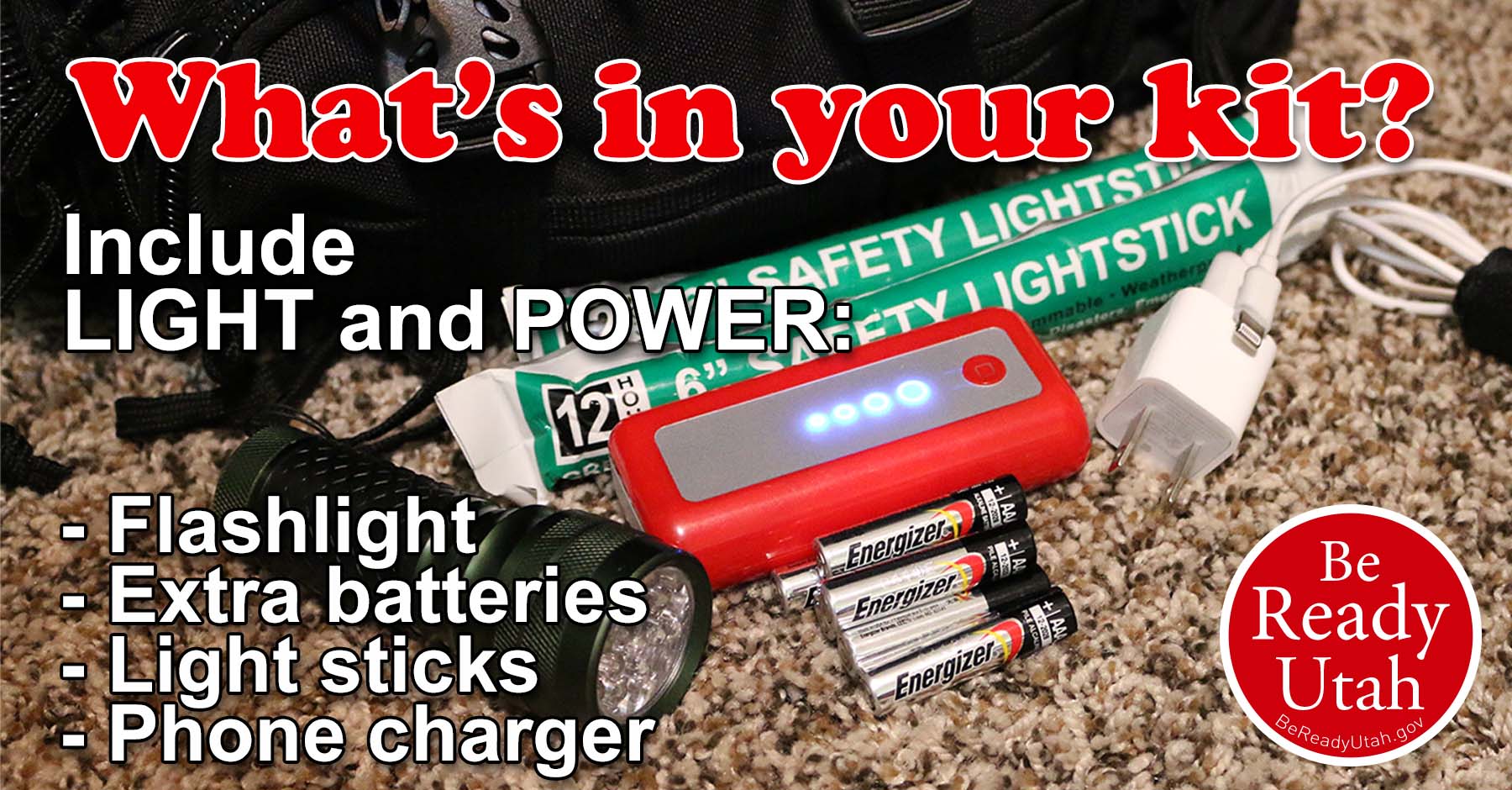
Candle and Oil Lamp Safety
Click Here
